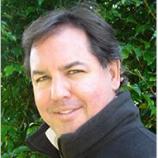Interview: January 17, 2003
January 17, 2003
In the second of two special interviews for Bookreporter.com's Suspense/Thriller feature, Stephen Frey, author of SILENT PARTNER, reveals his writing and editing techniques, discusses how he combats writers block, and shares plans for future books.
BRC: Do you outline before you begin your books, or did you let the story evolve on its own? Whether you outline, or not, does the story end up the way you planned?
SF: I always outline --- in fact it's required in the publishing contract that I submit an outline --- but I do it very extensively, and you know what? The book still takes twists and turns that I never imagined. In fact, that's how I actually start writing. I make the outline more and more and more detailed until I realize I might as well be writing.
BRC: Describe your editing process. Do you write and then go back to edit later, or do you revise a page until it is right, then proceed to the next page, and so on?
SF: Get it down the first time. That's my mantra. The blank page is my enemy. It's so much easier for me to edit than write the original words. I try to get all the way through a chapter, then go back and edit. Now, once I've finished a first draft, I'll go back and look at big picture editing. Should this character come in sooner, does this scene really work here, etc.
BRC: Have you ever started a book and realized it was not going to work and just scrapped it?
SF: No. I once wrote half a book and realized I needed to stop, and go back to the outlining process. That I hadn't clearly thought out all the plot threads. But I've never scrapped a book.
BRC: The dread of all writers is writer's block. What methods, or tricks, if you will, have you utilized to overcome the blank stare at the blank page?
SF: I have two daughters and I've told them I will pay for four years of whatever college they get into. The thought of what that will cost usually gets me right back on track. Only kidding. I've been fortunate. I've never had that problem. Now, I've had days where it isn't coming to me very easily, but I can usually crank it up. I write much better in the mornings than at night.
BRC: In Stephen King's ON WRITING, he says every writer must do two things: 1) read a lot and 2) write a lot. Do you agree with him? And if so, how do you balance reading and writing?
SF: I don't read very much, but I write all the time. Which presents a bit of a problem. Business people don't want to read a memo that seems like a novel, and novel readers don't want a memo --- so I have to be careful there. I'd like to read more, but I simply don't have the time right now. I wrote two novels by hand in 1991 and 1992, so I have written a lot.
BRC: Where do you write? What do you envision as your "perfect" writing room or is it more like you have a "perfect laptop" for writing?
SF: I write in my study at home, but my perfect writing place would be a cave. Literally. Absolutely no distractions.
BRC: Who is your "first reader" or "readers" when you finish your work?
SF: My wife, then my editor, Mark Tavani at Ballantine. My wife's great. She tells me like it is. I ask her to read it for typos and content and she's able to do it. Sometimes you get so inside a book, you lose perspective. She's helped me a number of times and had great suggestions. Mark's great too. He's young, but sooooo talented.
BRC: Do you have a favorite book of yours? If so, what is it?
SF: My favorite book is always the last one I wrote ... and THE TAKEOVER. It was the first one and I have so many good memories of realizing that a major publishing house was actually interested in something I wrote. It was incredible.
BRC: In recent years writers such as John Grisham and David Baldacci have published books that were not suspense novels, (A PAINTED HOUSE and WISH YOU WELL). Do you have a desire to write a completely different type of novel? Why or why not?
SF: I definitely have other types of books I want to write --- in fact I've started two. They are dark suspense --- sounds like financial thrillers. Kidding. They are much more character driven. And I've always wanted to be a sitcom writer. I am a Seinfeld/MASH/Cheers junkie. I think that would be a blast.
BRC: Do you monitor your Amazon ranking, or sales numbers vigilantly? Do you see this in the book world as synonymous with tracking Bloomberg news in the financial world?
SF: I don't track those stats at all. You can't get wrapped up in those things because you'll get too high and too low. I try to keep an even keel and let others like my agent and editor worry about those things. And I think they like it that way.
BRC: How do you feel seeing your books on a shelf in a bookstore? Compare it to closing on a "deal."
SF: What's really neat is to see your daughter see the book on the shelf. I have to admit, that's a rush.
What I always try to keep in mind is that so many people have helped put that book on the shelf when I see it. From the senior execs, to the editorial staff, to sales and marketing, all the way along the line. They have given me a great chance, and I truly appreciate what they do.




